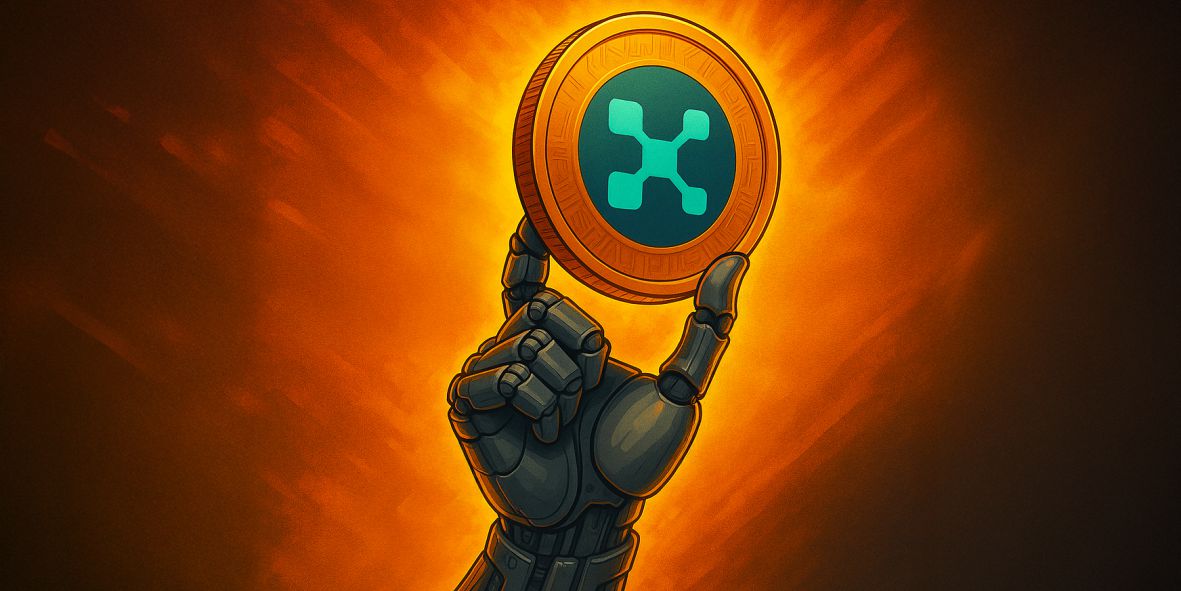Key Takeaways:
- Kaito (KAITO) surges 80% this week, leading AI token gains.
- Internet Computer (ICP) rebounds more than 8% as AI dApp activity grows.
- Tether AI launch sparks fresh institutional interest in crypto-powered AI.
AI Crypto Market Divergence: Decentralization Drives Demand
The first week of May 2025 has marked a turning point for AI-related cryptocurrencies, with decentralized projects leading the charge. While Bitcoin traded sideways, AI tokens like Kaito (KAITO) and the Artificial Superintelligence Alliance (FET) posted double-digit gains, signaling a growing investor appetite for blockchain-powered artificial intelligence.
This rally coincides with Tether’s decentralized AI platform debut, signaling growing investor confidence in blockchain-based machine learning solutions.
At the forefront of this movement is KAITO, the token behind a decentralized AI search engine. This week alone, its price surged more than 80% from $0,77 to $1,45, reaching a market cap of $350M. Unlike traditional search engines that rely on centralized servers, Kaito leverages blockchain to deliver uncensored, privacy-focused results while sharing revenue with token holders. This model has resonated with users tired of Big Tech’s data monopolies, driving adoption and price appreciation.
Meanwhile, the Artificial Superintelligence Alliance (FET) – a merger of Fetch.ai, Ocean Protocol, and SingularityNET – continued its upward trajectory with up to a 12% gain at the time of writing. The project’s ambitious goal of creating an open AI development ecosystem has attracted both retail and institutional interest, pushing its market cap to $ 1.67B. Analysts point to FET’s real-world utility in data marketplaces and machine learning as key differentiators from speculative AI tokens.
Another standout performer was Story (IP), an AI-powered storytelling platform that climbed 10%. The project, which allows users to generate books, scripts, and even interactive narratives, recently partnered with a major streaming platform, fueling speculation about blockchain’s role in the future of entertainment.
The Internet Computer (ICP) also saw renewed interest, rising more than 5% in its price as developers increasingly adopt its blockchain-based hosting for AI and other applications. By eliminating reliance on Amazon Web Services or Google Cloud, ICP offers a censorship-resistant alternative for AI deployment, a feature gaining traction amid growing regulatory scrutiny of centralized AI models.
Perhaps the most significant development, however, was Tether’s entry into the AI space with the launch of Tether.AI. The stablecoin giant unveiled a peer-to-peer AI network that enables payments in Bitcoin and USDT, bypassing traditional cloud providers. While still in its early stages, Tether’s move validates the convergence of AI and blockchain, potentially opening the floodgates for institutional capital.
Why This Rally Matters for the Crypto Space
This week’s AI token surge doesn’t seem like a short-term speculation. It reflects a broader shift toward decentralized AI solutions that prioritize user control, transparency, and fair compensation. Unlike the memecoin mania of previous cycles, these projects are backed by tangible technology and partnerships, suggesting staying power beyond the hype.
That said, risks remain. AI tokens are still highly volatile, and regulatory uncertainty looms as governments grapple with AI governance. Investors should approach the sector with caution, focusing on projects with clear use cases and sustainable tokenomics.
The Bottom Line
The AI crypto boom is here, and this week’s price action is just the beginning. As more enterprises explore blockchain-based AI, from search engines to creative tools, the sector could soon rival DeFi in market size and influence. For investors, the key will be separating signal from noise, backing projects that solve real problems rather than chasing fleeting pumps.
So far, one thing is clear: with Tether now in the game, AI tokens are no longer a niche; they’re becoming a cornerstone of the crypto economy.







